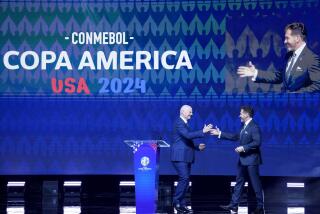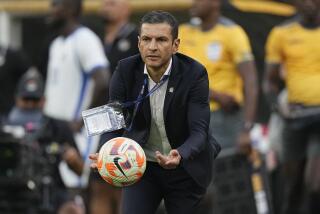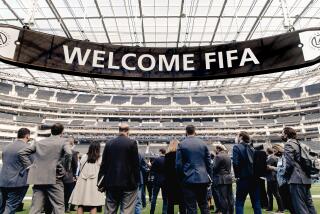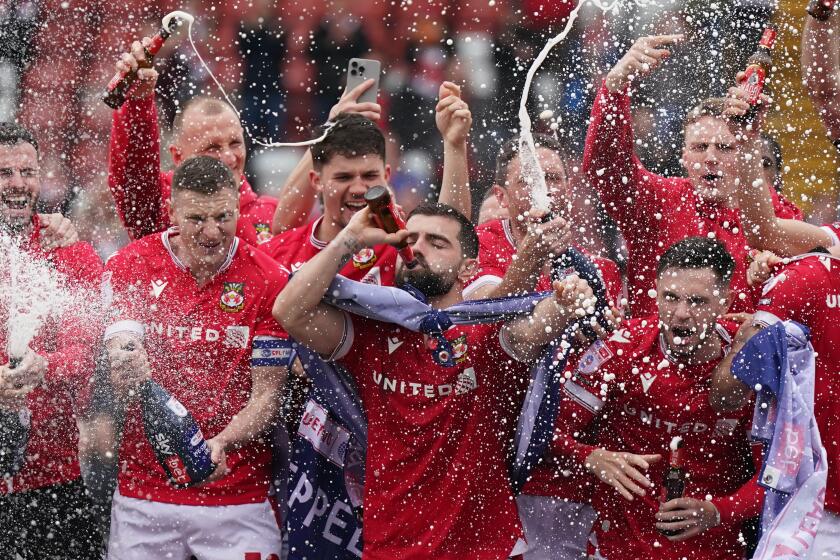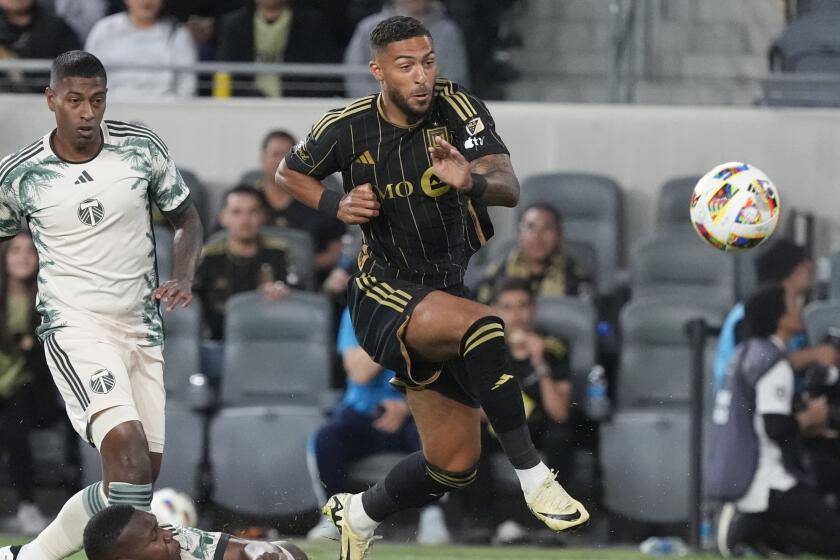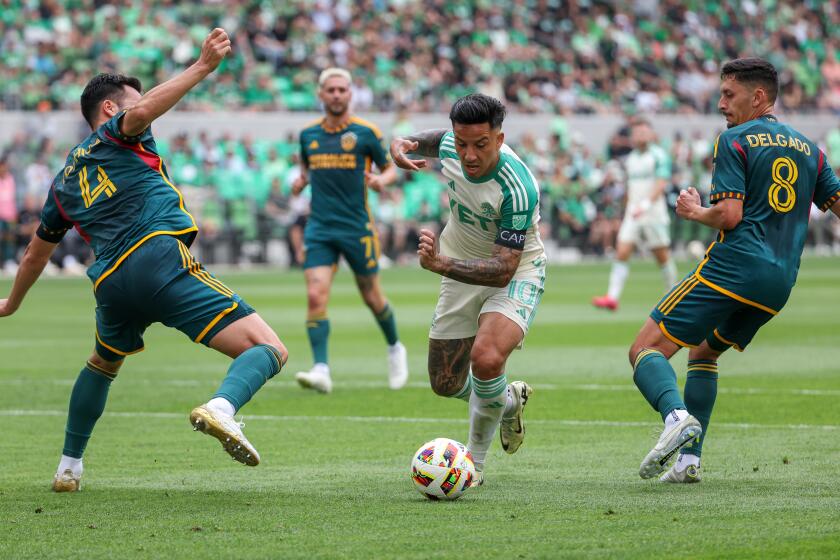Brazil’s World Cup setbacks: It’s out of final, Argentina is in it
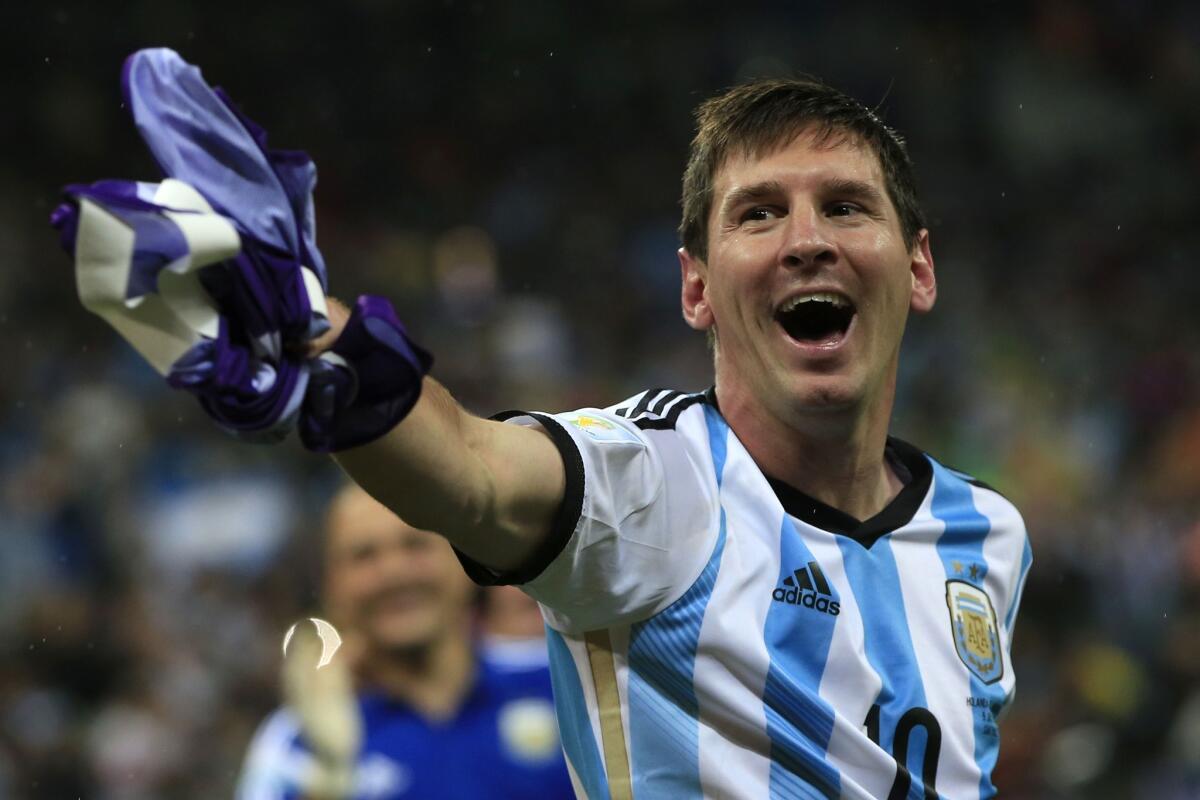
This hasn’t been a very good week for Brazil.
First its national team got spanked by Germany, 7-1, in the most lopsided semifinal in World Cup history. Then, 24 hours later, Brazilian soccer fans had to watch hated rival Argentina advance to the final by beating the Netherlands in a penalty-kick shootout.
The home team gets routed and its unwelcome guests win a squeaker. It’s almost as if Argentina had God on its side — which is a topic we’ll get to in a minute.
The point is, the host country must now busy itself with Saturday’s no-one-cares consolation game in remote Brasilia, with Argentina playing Germany in Sunday’s final in Rio de Janeiro’s Maracana Stadium, the holiest shrine in Brazilian soccer.
It’s as if the Boston Red Sox were about to play the World Series at Yankee Stadium.
Actually, to say Argentina and Brazil are hated rivals probably isn’t fair. The animosity, fueled by both jealousy and insecurity, goes much deeper than simply hate.
Imagine Auburn-Alabama, only with different accents and no NASCAR.
Brazil and Argentina are South America’s unquestioned soccer superpowers, having combined to win seven of 19 World Cup titles and 22 of 43 Copa America crowns, which are emblematic of continental superiority. And though they share an 800-mile border, Brazilians have steadfastly refused to share a language with their neighbors, insisting on remaining the only country in the Americas to speak Portuguese.
So the haughty Argentines, who have flooded Brazil in the last month, are probably taking more joy in Brazil’s pain than they are in their own team’s victories.
On the way to Wednesday’s semifinal with the Netherlands, a bus full of Argentine fans left the main highway and meandered through crowded side streets in Sao Paulo, looking for locals to taunt. During games the Argentines have taken to singing a colorful little 58-word ditty that concludes with the sacrilegious — for Brazilians — claim that Maradona was better than Pele.
And now, at least in this tournament, Lionel Messi has proved to be better than Neymar.
Perhaps fearing all this might come to pass, Rio’s colorful mayor, Eduardo Paes, actually promised to kill himself if Argentina beat Brazil. And that was before the tournament began.
Looks like he dodged a bullet — literally — since the two teams won’t actually meet on the field. But in many ways seeing Argentina playing for a title in a game for which Brazil didn’t even qualify may be worse.
“They have Messi and the pope,” Paes said. “They can’t have everything.”
Speaking of the Buenos Aires-born pontiff, Pope Francis may be the world’s most famous soccer fan. He is a fervent backer of Argentine club San Lorenzo, which rallied from the brink of relegation to its first title in six seasons just months after Francis ascended to the papacy.
It was a resurrection many said could be explained only by divine intervention. And now Argentina, which hasn’t made it past the quarterfinals of a World Cup in 24 years, is in the final for the first time in a generation.
Was this too divine intervention? The pope has kept his public prayers neutral during the World Cup; what he has prayed for in private, though, is between him and his maker.
This wouldn’t be first time the church has been cited on Argentina’s behalf. In the 1986 World Cup, Maradona credited the “hand of God” with an assist on a goal (from a hand ball) he scored against England. And four years later, in what became known as “the holy water incident,” Maradona told a TV interviewer that the Argentine training staff gave a Brazilian player a drink laced with tranquilizers during a World Cup game.
Brazil has known World Cup pain and shame before on its home soil. The only other time the tournament was played in Brazil, Uruguay beat the hosts in the Maracana in a final that, 64 years later, is still remembered as such a tragedy it has its own name: the Maracanazo.
At the final whistle one man collapsed and died of a heart attack. Two others committed suicide in the stadium. For four years the national team refused to play in the hulking Maracana, believing it to be haunted. And Brazil never again wore the white uniforms it had donned for that match, switching to the blue, yellow and green of the Brazilian flag.
And now there’s a 50-50 chance Argentina — hated Argentina! — could raise soccer’s Holy Grail on that very field, the most venerated piece of real estate in Brazil.
For the host country, it can’t get much worse than that.
Follow Kevin Baxter on Twitter @kbaxter11

